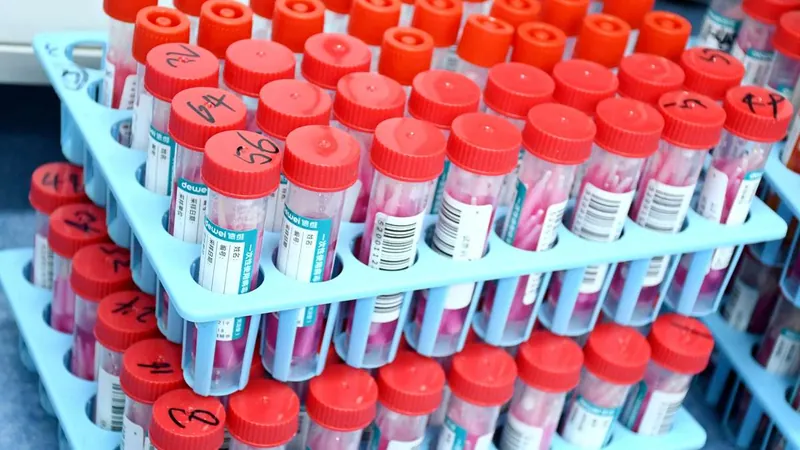
Breakthrough Blood Test for Early Parkinson's Detection Could Change Lives!
2025-04-16
Author: Wei Ling
Revolutionary Discovery by Israeli Researchers
In a groundbreaking advancement, Israeli researchers have developed a blood test that promises to detect Parkinson’s disease in its earliest stages—potentially changing the future of diagnosis and treatment.
How Military Training Fostered Innovation
Leading the research is PhD student Nimrod Madrer, whose experiences in an elite intelligence unit of the Israel Defense Forces sharpened his ability to identify complex patterns. "I was trained to search for patterns in data," he shared with the Times of Israel. His keen observation revealed elevated patterns of tRNA fragments in the cerebrospinal fluid of Parkinson’s patients.
Identifying Biomarkers: A Key to Early Detection
The research team pinpointed two significant groups of tRNA fragments that serve as potential biomarkers for Parkinson's. The first, dubbed RGTTCRA fragments, were found to be in higher concentrations among patients. The second group, linked to mitochondria—crucial for cellular energy production and often damaged in Parkinson’s—exhibited reduced levels.
A Simple Blood Test That Works!
By analyzing the ratio of these tRNA groups in blood samples, researchers developed a method to differentiate individuals who are pre-symptomatic for Parkinson’s disease from healthy participants. Using the polymerase chain reaction (PCR) technique familiar from COVID-19 testing, the team conducted trials with samples from 60 Parkinson's patients and 60 control subjects, provided by the Michael J. Fox Foundation. Impressively, the test accurately identified Parkinson’s cases 86% of the time!
A Vision for the Future
Madrer envisions a time when this simple blood test can be administered by clinicians routinely, making it possible for anyone over 65 to learn their risk for developing Parkinson’s. He stated, "The goal is to have this blood test available in another decade, allowing early intervention for at-risk patients."
Next Steps: Expanding the Research
The team is currently engaging with pharmaceutical companies to broaden their study, an essential step towards obtaining approval from the U.S. Food and Drug Administration (FDA). In addition, they are delving deeper into the biological mechanisms that influence tRNA fragment levels, striving to determine whether these changes are a cause or a consequence of the disease.
Hope for New Treatments
While the journey is far from complete, Madrer remains optimistic. "Understanding the underlying mechanisms will hopefully guide us toward new treatments for Parkinson's disease," he concluded. This innovative research not only shines a light on early detection but potentially opens doors to groundbreaking therapies for millions worldwide.




 Brasil (PT)
Brasil (PT)
 Canada (EN)
Canada (EN)
 Chile (ES)
Chile (ES)
 Česko (CS)
Česko (CS)
 대한민국 (KO)
대한민국 (KO)
 España (ES)
España (ES)
 France (FR)
France (FR)
 Hong Kong (EN)
Hong Kong (EN)
 Italia (IT)
Italia (IT)
 日本 (JA)
日本 (JA)
 Magyarország (HU)
Magyarország (HU)
 Norge (NO)
Norge (NO)
 Polska (PL)
Polska (PL)
 Schweiz (DE)
Schweiz (DE)
 Singapore (EN)
Singapore (EN)
 Sverige (SV)
Sverige (SV)
 Suomi (FI)
Suomi (FI)
 Türkiye (TR)
Türkiye (TR)
 الإمارات العربية المتحدة (AR)
الإمارات العربية المتحدة (AR)